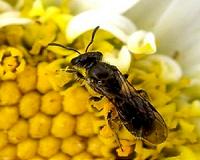| . |  |
. |
Santa Cruz De La Sierra, Bolivia (UPI) Aug 31, 2010 Millions of aquatic animals in land-locked Bolivia's river systems have perished in unusually cold weather during the ongoing winter. The casualties include at least 6 million fish, thousands of alligators, turtles and river dolphins, scientific reports cited by Nature News said. Losses of penguins were reported in Brazil and cattle deaths, affected by a cold snap from the Antarctic, hit farmers in Paraguay. The scientists' version of how the aquatic animals were decimated was hotly contested by visitors to Nature News Web site, while official Bolivian reports on the aquatic deaths were still awaited. Bolivia is no stranger to extreme weather conditions as its geography interacts with humid tropical conditions but the aquatic deaths took scientists by surprise. Tens of thousands of Bolivians who depend on the river resources face a bleak future as officials try to work out how to deal with a developing ecological crisis and its impact on the communities and national economy. The deaths came to light after a sudden cold spell during the Southern Hemisphere's winter, which begins in late June and lasts to the third week of September. The region around the city of Santa Cruz de la Sierra, in the eastern part of Bolivia, usually experiences warm subtropical climate. Temperatures average 74 degrees Fahrenheit with 68 percent humidity. Scientists who visited the affected rivers said Bolivia could be facing its worst ecological disaster in recent history. They reported river waters dotted with tens of thousands of dead fish, denying nearby communities access to safe drinking water. The trouble began after cold Antarctic air settled over the southern cone of South America for most of July. Water temperature in Bolivian rivers, normally about 59 degrees Fahrenheit, dropped to about 39 degrees Fahrenheit and was matched by the air temperature -- coldest since 36.5 degrees recorded in 1955. Other experts cited by Nature News said shock caused by extreme cold could cause the mass deaths among fish. "When fish die, it's usually not a single stressor, but multiple stressors interacting," said Steven Cooke, an aquatic ecologist at Carleton University in Ottawa. "So, if cold shock or cooler temperatures are being implicated in mortality, there's probably something else going on as well." Other experts said pollution from the large-scale burning of of farmland around Santa Cruz could also be responsible for aquatic deaths. Officials said funding was awaited to conduct detailed research into the aquatic deaths. Meanwhile, Bolivians in the affected areas are hoping for government help with the cleaning of the river waters before disease sets in.
Share This Article With Planet Earth
Related Links Darwin Today At TerraDaily.com
 Scientists Say Natural Selection Alone Can Explain Eusociality
Scientists Say Natural Selection Alone Can Explain EusocialityCambridge MA (SPX) Aug 31, 2010 Scientists at Harvard University have sketched a new map of the "evolutionary labyrinth" species must traverse to reach eusociality, the rare but spectacularly successful social structure where individuals cooperate to raise offspring. Mathematical biologists Martin A. Nowak and Corina E. Tarnita and evolutionary biologist Edward O. Wilson present their work this week in the journal Nature ... read more |
|
| The content herein, unless otherwise known to be public domain, are Copyright 1995-2010 - SpaceDaily. AFP and UPI Wire Stories are copyright Agence France-Presse and United Press International. ESA Portal Reports are copyright European Space Agency. All NASA sourced material is public domain. Additional copyrights may apply in whole or part to other bona fide parties. Advertising does not imply endorsement,agreement or approval of any opinions, statements or information provided by SpaceDaily on any Web page published or hosted by SpaceDaily. Privacy Statement |